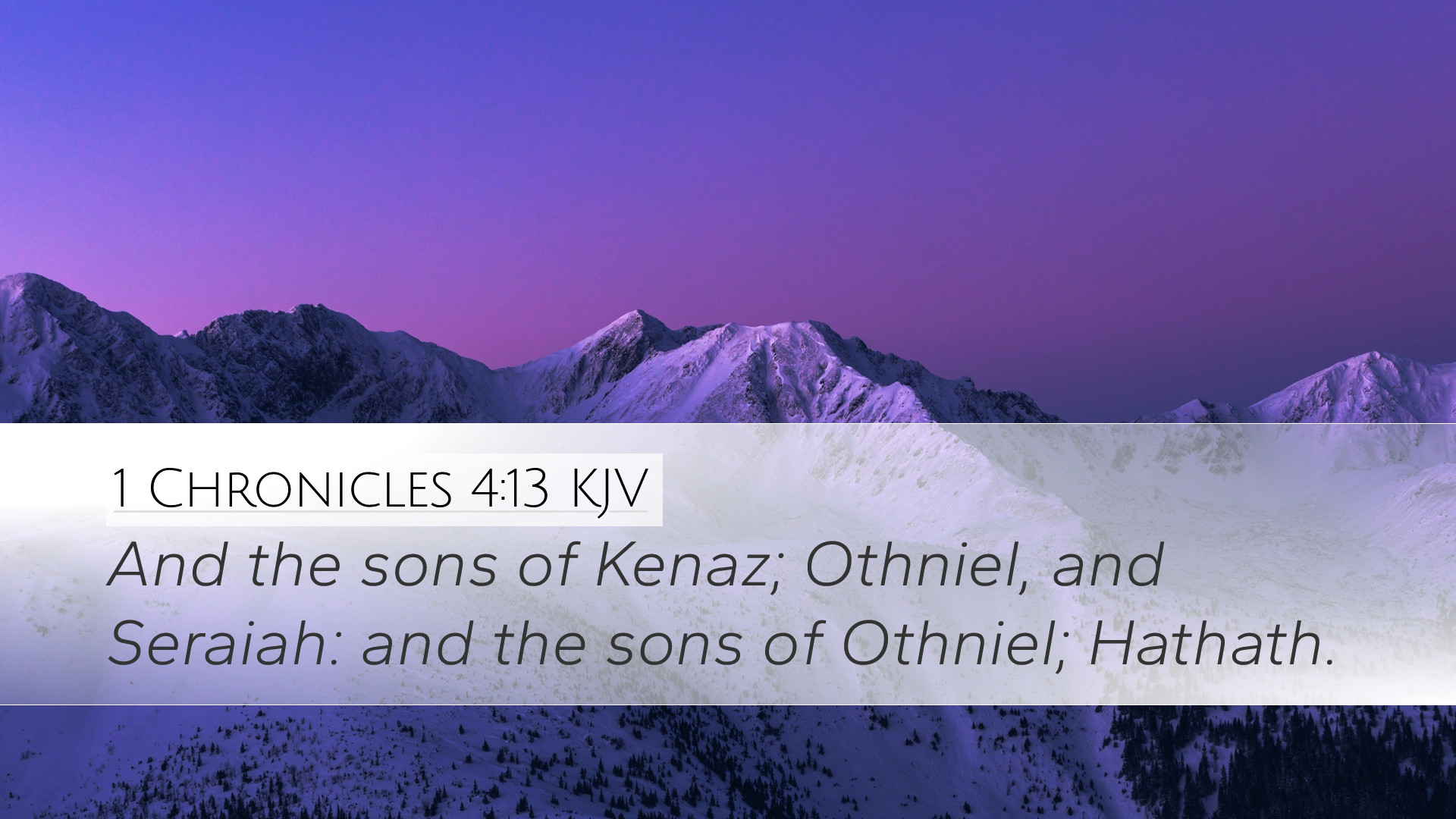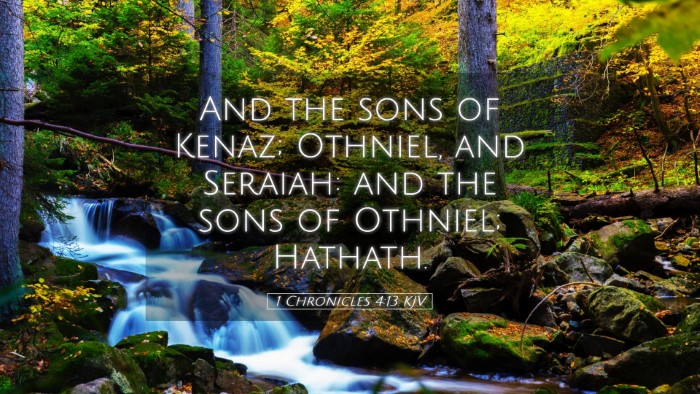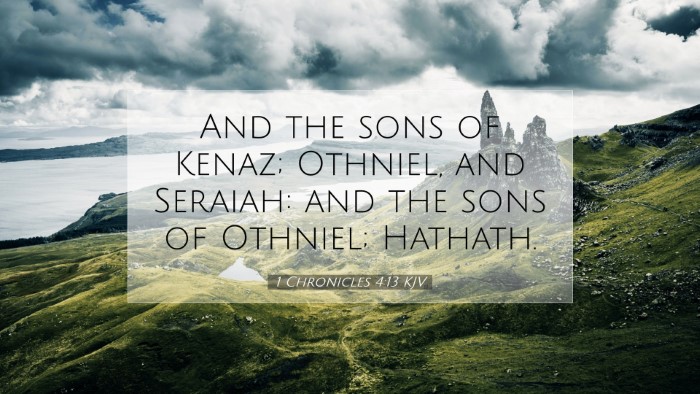Commentary on 1 Chronicles 4:13
1 Chronicles 4:13 states:
"And the sons of Kenaz: Othniel, and Saraiah: and the sons of Othniel; Hathath."
Introduction to the Context
The genealogical records in 1 Chronicles serve to establish the lineages of Israel, emphasizing the importance of heritage and God's covenant with His people. Chapters primarily outline various families, and this specific verse introduces the descendants of Kenaz, reinforcing the significance of tribe and family in Hebrew culture.
Insights from Matthew Henry
Matthew Henry provides a detailed examination of the genealogical aspects of Scripture. In his commentary, he notes:
- Lineage Importance: Henry emphasizes that genealogy shows God's faithfulness through generations. The mention of Othniel highlights God's choosing of leaders from among the tribes.
- Character of Othniel: Henry points out that Othniel, being the first judge of Israel, symbolizes leadership endowed by divine selection. His role signifies God's ability to raise leaders from humble beginnings.
- Historical Context: The verse reflects the post-exilic concern with establishing identity and the recognition of God’s providence in the leadership of Israel.
Insights from Albert Barnes
Albert Barnes focuses extensively on the implications of this lineage.
- The Significance of Kenaz: Barnes explains that Kenaz is linked to Caleb, thus indicating a connection to faithful service and leadership in Israel, showcasing that these lineages are rooted in God's promises.
- Othniel's Leadership: He highlights that Othniel, as one of the sons of Kenaz, stands out for his bravery and strategic military leadership, which is foundational for Israel's deliverance in times of oppression.
- Faithfulness and Heritage: Barnes emphasizes that understanding this lineage can inspire future generations to uphold their heritage of faith and reliance on God’s direction.
Insights from Adam Clarke
Adam Clarke offers a more theological reflection on the genealogies, emphasizing their prophetic significance.
- Prophetic Lineage: Clarke argues that genealogies serve prophetic purposes, foretasting the coming of the Messiah, and thus encourage readers to view these familial connections as part of God's overarching redemptive plan.
- Cultural Relevance: Clarke takes note that even in seemingly simple listings, there is a cultural weight that demonstrates the fulfillment of God's promises to the patriarchs.
- Application of Othniel’s Character: He also expands on Othniel's character, suggesting that individuals in leadership positions should exemplify righteousness and courage, mirroring biblical ideals for all leaders.
Conclusion
As we reflect on 1 Chronicles 4:13, we are reminded that genealogies are not mere lists of names but are imbued with theological significance and historical context. Scholars and pastors can derive valuable lessons from the lives of individuals like Othniel, recognizing how God uses ordinary people for extraordinary purposes. This verse, while concise, encompasses themes of divine providence, heritage, and the continuity of God's promises through generations.
For the modern believer, understanding this lineage is an invitation to embrace our own heritage of faith, to recognize God’s active involvement in history, and to pursue lives of faithfulness and courage as modeled by biblical figures.


